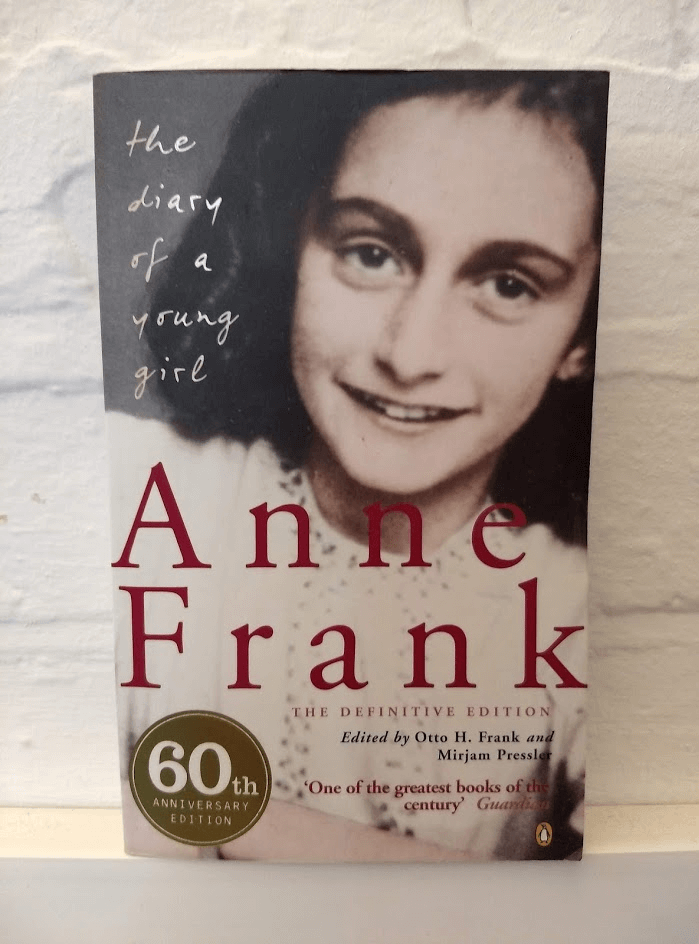Anne Frank in Translation
Language and translation in Anne Frank: the diary of a young girl
Reading Anne Frank as someone working in the translation industry one notices how central language is to Anne and the others living in the annex. What stood out reading the book is how multi-lingual the Franks all were and what a role language played in both the politics and the entertainment of those in the Annex.
Anne was bilingual, speaking both German and Dutch. While in hiding she also studied both French and English. She was born in Germany and her family were native German speakers but Anne, her sister and her father all spoke fluent Dutch, as the girls went to school in Holland for years and Otto, her father, used Dutch for work. Anne moved to Holland in 1934 when she was just 5 years old. Anne’s mother and the other woman in the annex however both struggled with their Dutch “..the two ladies speak abominable Dutch (I don’t dare comment on the gentlemen: they’d be highly insulted). If you were to hear their bungled attempts, you’d laugh your head off. We’ve given up pointing out their errors, since correcting them doesn’t help anyway. Whenever I quote Mother or Mrs. van Daan, I’ll write proper Dutch instead of trying to duplicate their speech.” (34)
Anne is clearly aware of her mother’s poor Dutch and how this must seem to the Dutch friends who help them in the Annex. Not only is she seemingly embarrassed by her mother, as most teenagers are, but as a young immigrant to Holland, she has taken on ‘proper’ Dutch as her primary language naturally.

Language also plays a political role in the lives of those in the Annex. They agreed that no one would speak German. They had a typed set of rules that the group had agreed upon and shared with a newer member of the annex, Mr Dussel, when he later arrived. Along with provisions to help keep them safe and undetected they also included “rules” on language:
“Use of language: It is necessary to speak softly at all times. Only the language of civilized people may be spoken, thus no German.
Reading and relaxation: No German books may be read, except for the classics and works of a scholarly nature.” (67)
We do know however that the rules on speaking German were broken and not just by Mrs. Frank but even by Anne herself but only in a moment of upset. “I was so upset I started speaking German.” (299)
Despite being a polyglot there is no indication in the book that Anne spoke Yiddish or was able to read Hebrew. Given the voracious reading habits of those in the annex and their clear scholarly aims, I find it interesting that Anne and the others in the annex did not seem to study works in Hebrew. Most likely they were not able to obtain them easily or without risk. If they had not brought the texts with them to the annex at the onset they may not have been able to obtain them. We do know from Anne’s diary that her mother at least was somewhat religious but her prayer book was written in German, “Mother pressed her prayer book into my hands. I read a few prayers in German, just to be polite.” (59)
Anne too seems to have prayed in German and not Dutch, maybe as in influence from her mother. She says, “I lie in bed at night, after ending my prayers with the words “Ich Janke air fur all das Cute una Liebe una Schone”.
The only indication that anyone spoke or understood Hebrew or Yiddish, though it is likely they did, is Anne’s mention of the radio. “Private radio with a direct line to London, New York, Tel Aviv..” (66)
Translations of Anne Frank’s Diary
Much has been written on the translation of Anne Frank and there has always been controversy around how the book was translated and edited. Much of this controversy is not so much concerning the quality of the translation but in the editing (or censoring) of the material in certain versions. Obviously, The Diary of Anne Frank, though written by a child contains sensitive and political topics. As time has passed newer editions of the book contain more of Anne’s original text and more accurate translations.
Anne edited her own work and though the diary was written at first as a normal diary by the end Anne intended to share her diary and accounts with the world.
I have no doubt that if she had survived the war she would have translated the dairy herself into German and not chosen to edit it so heavily, no matter the political sensitivity of the subject matter.
The diary has been translated into 70 languages with over 30 million copies sold.
The Diary of Anne Frank was first translated from Dutch into German in 1950. After it was translated into German it was next translated into English for Britain and the United States in 1952. Now the diary has been translated into 70 languages, and is the most translated Dutch book ever.
The book has sold over 30 million copies in more than 60 countries and 70 languages.
|














